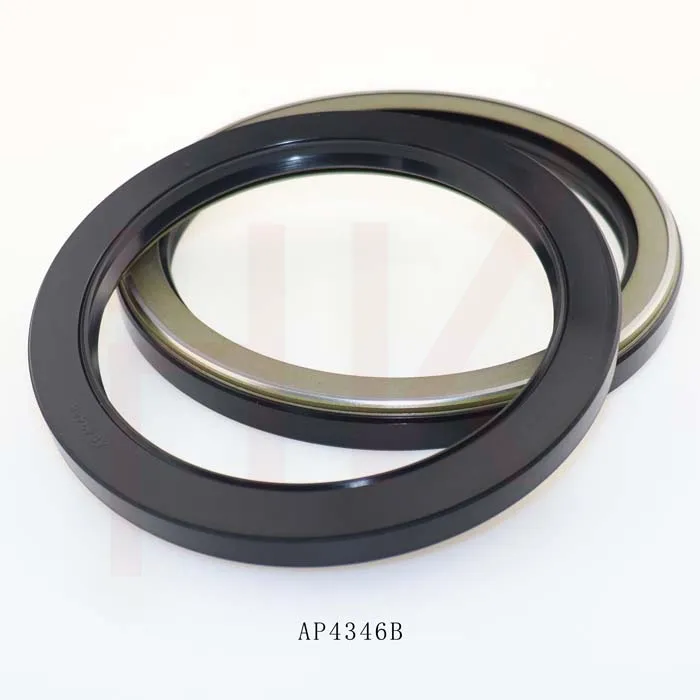Nov . 23, 2024 17:49 Back to list
skeleton oil seal
Understanding Skeleton Oil Seals A Comprehensive Guide
Oil seals play a crucial role in various mechanical systems, providing essential protection against the ingress of contaminants and the egress of lubricants. Among the plethora of oil seals available on the market, skeleton oil seals stand out due to their unique design and functionality. This article delves into the characteristics, applications, advantages, and maintenance of skeleton oil seals.
What is a Skeleton Oil Seal?
Skeleton oil seals, often referred to as skeleton seals or rubber seals, are specifically designed to provide a secure barrier against leaks while allowing for the smooth operation of rotating components. They are characterized by their metal or rubber reinforced structures, which improve durability and performance under various operating conditions. The term skeleton reflects the presence of a supporting structure that enhances the seal's integrity without compromising its flexibility.
Design and Construction
A typical skeleton oil seal consists of three main components the elastomeric sealing element, the metal casing, and the inner lip. The elastomeric component is made from various materials, such as nitrile rubber (NBR) or fluoroelastomer (FKM), which provide excellent resistance to oil, temperature, and wear. The metal casing typically serves to strengthen the outer structure, helping to maintain the seal’s form under pressure and stress.
The inner lip is responsible for creating the primary sealing action against the shaft, preventing oil leaks and contamination from entering the lubrication zone. The innovative design of skeleton oil seals allows them to accommodate slight misalignments and shaft deviations, making them versatile in different mechanical systems.
Applications
Skeleton oil seals are widely used across various industries, including automotive, aerospace, manufacturing, and machinery. In automotive applications, they are commonly found in gearboxes, differentials, and engine components. Their ability to withstand high pressures and temperatures makes them ideal for applications where reliability is paramount.
In the aerospace sector, skeleton seals are utilized in hydraulic actuators, landing gear, and other critical systems where fluid leakage can lead to significant safety hazards. The durability and effectiveness of skeleton oil seals make them indispensable in environments that demand high performance and dependability.
Advantages of Skeleton Oil Seals
skeleton oil seal

1. Enhanced Sealing Performance The combination of a reinforced structure and flexible sealing element allows skeleton oil seals to provide superior sealing performance under varying operational conditions.
2. Temperature Resistance Depending on the elastomer used, these seals can withstand a wide range of temperatures, ensuring that they maintain their integrity in extreme conditions.
3. Durability The metal casing and quality elastomers enhance the lifespan of skeleton oil seals, reducing maintenance needs and replacement frequency.
4. Adaptability With their ability to handle minor misalignments and variations in shaft sizes, skeleton oil seals are adaptable for numerous applications across different industries.
5. Cost-Effectiveness While the initial investment in high-quality skeleton oil seals might be higher than standard seals, their long-term durability and reduced maintenance costs often result in overall savings.
Maintenance and Care
While skeleton oil seals are designed for durability, proper maintenance can further extend their lifespan. Regular inspections should be performed to check for signs of wear, such as cracks or deformation. In addition, ensuring that the operating environment is clean and free of debris can help maintain seal integrity.
Lubricating the seals periodically, particularly in high-friction applications, can also enhance their performance and longevity. When replacing a seal, it's vital to ensure correct installation to prevent future leaks and damage.
Conclusion
Skeleton oil seals are an integral component in many mechanical systems, providing essential sealing solutions that enhance performance and reliability. Their unique design enables them to perform effectively in demanding environments, making them an ideal choice for a wide variety of applications. Understanding the characteristics and care of these seals can contribute to more efficient and trouble-free operations in numerous industries. In a world where machinery plays a central role, investing in quality components such as skeleton oil seals proves invaluable for maintaining optimal performance and safety.
-
TCN Oil Seal Metal Ring Reinforcement for Heavy Machinery
NewsJul.25,2025
-
Rotary Lip Seal Spring-Loaded Design for High-Speed Applications
NewsJul.25,2025
-
Hydraulic Cylinder Seals Polyurethane Material for High-Impact Jobs
NewsJul.25,2025
-
High Pressure Oil Seal Polyurethane Coating Wear Resistance
NewsJul.25,2025
-
Dust Proof Seal Double Lip Design for Construction Equipment
NewsJul.25,2025
-
Hub Seal Polyurethane Wear Resistance in Agricultural Vehicles
NewsJul.25,2025
-
The Trans-formative Journey of Wheel Hub Oil Seals
NewsJun.06,2025
Products categories
















